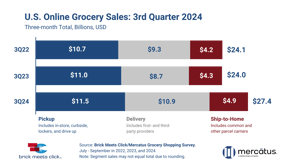BRAND SCHIZOPHRENIA
Looking at the activity surrounding today's most visible brands, it seems as though a brand mental health epidemic, brand schizophrenia, is emerging. Companies are extending their brands into new products and categories at an unprecedented rate.Some of these extensions are truly synergistic, rational and complementary, taking the brands' core associations and leveraging them in a relevant and credible
October 14, 2002
Lisa Marchese
Looking at the activity surrounding today's most visible brands, it seems as though a brand mental health epidemic, brand schizophrenia, is emerging. Companies are extending their brands into new products and categories at an unprecedented rate.
Some of these extensions are truly synergistic, rational and complementary, taking the brands' core associations and leveraging them in a relevant and credible manner: disposable bibs from Pampers; oral care strips from Listerine; disinfecting wipes from Clorox; and sweetened dried cranberries from Ocean Spray.
Increasingly, however, the brand landscape is littered with such ill-conceived and ill-fated brand extensions as mouthwash from Bausch and Lomb and aspirin from BenGay. In cases such as these, major brands are tempting fate by launching products that threaten their relationship with loyal customers as well as the health of their business as a whole.
The Cause
This phenomenon is driven by a number of factors, many of which are economic in nature. Today's highly competitive and tumultuous environment is forcing many companies to look within their own walls for sources of additional revenue. They are looking to leverage existing assets to drive additional growth -- whether this means getting the most out of tangible assets such as employees and equipment, or building on less tangible ones such as brand.
Brand extensions have gained favor over new brand development as a more cost-effective and less risky means to deepen relationships with existing customers and/or reach new customers and marketplaces. But without a highly strategic approach to development and execution, successful brand extensions are elusive.
Case 1:
Strong Brand Mental Health
Consider Dove, a brand that has been part of the American consumer landscape for over 45 years and is now available in over 80 countries. Its parent company, Unilever, has successfully extracted incremental revenue from this venerable brand by taking a highly strategic approach to extending its core attributes into new product areas. Its core benefits of creating softer, smoother skin have been effectively translated to innovative new product categories such as body washes, facial cleansers and wipes.
These brand extensions have succeeded because they capitalized on market trends as well as brand strength. Moreover, each new product launch has been successfully designed to support and build equity in the Dove master brand through consistent product quality, communication, merchandising, etc. The result is a global brand franchise worth well over $1.3 billion.
Case 2: Brand Schizophrenia
In stark contrast are the brand extension plans of another revered American brand: Hershey. Recent media coverage has addressed Hershey's potential plans to extend its highly successful Reese's and Kisses brands into the cosmetics category. Hershey's goal is to capitalize on the growing teen market via product line extensions into cosmetic products for teen girls.
While there is certainly market demand for such products, and Hershey's may possess, license, or acquire the organizational competencies to create such products, Hershey's is overlooking a critical factor: Do these brands have the "perceptual license" to play in this market?
Reese's and Kisses certainly have equity around fun and portability that seem applicable in this space, but their core association of rich chocolate taste seems counterproductive in a category that focuses on brightening and beautifying the user's face. Consumers will ultimately decide if this brand extension idea belongs in their makeup bag or the brand graveyard.
The Prescription
To effectively use brand extensions as a platform for growth, companies need to take a holistic approach to identifying and evaluating opportunities. This approach consists of examining each idea in light of three key parameters: organizational competencies, market opportunity and brand leverage.
Those most likely to succeed will be able to resist the temptation to pursue extension opportunities when one or more of the parameters are absent. These are the players who will separate themselves from organizations that make the common mistake of forging blithely ahead if a market opportunity and organizational competencies are present, even if there's no brand leverage.
By adopting a consistent and focused approach to growth opportunities, companies can reap the revenue- and loyalty-enhancing benefits of brand extensions and avoid becoming casualties of the brand schizophrenia epidemic.
Lisa Marchese is an engagement manager at the New York office of Prophet (www.prophet.com), a San Francisco-based consulting firm.
You May Also Like




